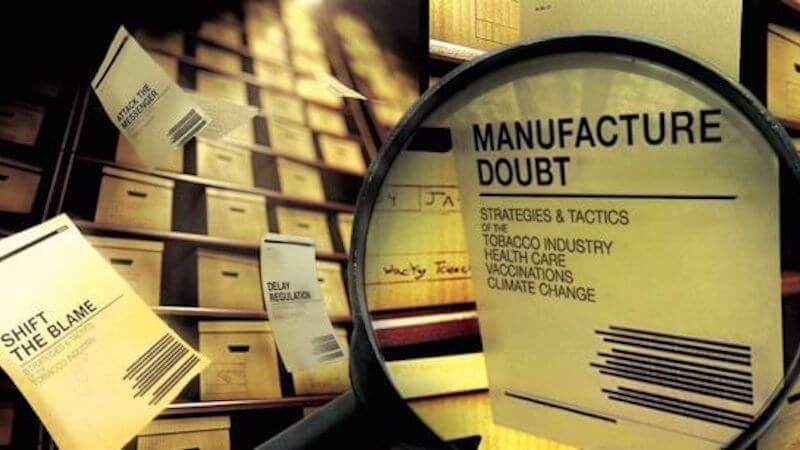This blatant contradiction in the activist argument has frustrated scientists who are trying to get good information out to the public, but it also reveals that the anti-GMO crowd doesn’t really care about facts. They’re playing a shell game to keep the controversy around glyphosate alive, which is why their crusade against the chemical is ultimately going to fail.
Lawsuit exposes the contradiction
Consider how Monsanto/Bayer’s legal battles in California played out as the company sought unsuccessfully to fend off lawsuits alleging that its Roundup weedkiller caused cancer. Expert witnesses testified against the biotech firm, and thousands of plaintiffs alleged that the company’s flagship weedkiller Roundup caused them to develop non-Hodgkin’s Lymphoma (NHL), the seventh most common type of cancer in the US.
The plaintiffs’ lawyers emphasized the solidity of their case: “There is overwhelming evidence…that exposure to [Roundup] causes NHL,” they wrote.
But Stacy Malkan, co-founder of US Right to Know, the activist group behind the lawsuits, seemed to contradict them. “Just because a chemical is old doesn’t mean it has been thoroughly studied,” she commented on Twitter, “…there are many gaps in data that shouldn’t be gaps given how widely used this chemical is.” U.S. Right to Know has also claimed elsewhere that “Much more research is needed to understand the impact on human health of chronic dietary exposures to pesticides…”
Since the lawyers have clearly argued that glyphosate causes cancer, I thought it was strange that Malkan would dance around the issue. When I pointed this out to her, she robotically repeated herself. “What I was wondering is…How much #glyphosate is in the food we eat? Those data gaps are totally unacceptable for the world’s most widely used herbicide. @MonsantoCo #cancer #science on trial.”
‘Merchants of Doubt’ in reverse
For many years, the tobacco industry utilized a “Merchants of Doubt” PR strategy to deny the link between smoking and lung cancer. As the evidence mounted, tobacco companies did all they could to foster doubt about the dangers of smoking. Malkan’s comment is one example of many in which anti-GMO activists pursue a similar strategy, but in the opposite direction. They argue that glyphosate is dangerous, then pivot to a position of uncertainty to keep the question open.
The junk science website Naturopathic Doctor News and Review, for example, writes that glyphosate is linked to celiac disease, cancer and endocrine disruption in humans, but tepidly concludes, “We still don’t know much about glyphosate.” New York University food scientist Marion Nestle similarly complains that pesticide manufacturers and food companies are working “hand-in-glove to keep information about these chemicals out of the public eye,” which is why we don’t know how pesticide residues on food affect consumers. “Here, the evidence for long-term harm is weak, uncertain, and unhelpful,” she says. But in another post, Nestle complains that glyphosate has been linked to cancer and concludes by asking, “Maybe it’s time to start phasing it out—and soon?”
In science you can’t argue this way. You follow the evidence where it leads. Or if you don’t have any evidence, you don’t draw a conclusion. You certainly don’t do both simultaneously.
Fortunately, we have data on glyphosate from the USDA and can draw some conclusions. After conducting hundreds of studies on Roundup’s toxicity, the scientific community is convinced that the weedkiller is safe when used as intended. Experts have carefully considered the possibility that glyphosate causes celiac disease, cancer, and endocrine disruption, but there isn’t any evidence to support these claims.
Why the activists are losing
The scientific community has waged a long, arduous campaign to disarm these disingenuous anti-pesticide crusaders. We know it’s beginning to pay off because the activists are gradually losing their influence.
Almost 60 percent of Americans say they have no problem with genetically engineered food, according to the Pew Research Center. That’s a massive increase from 37 percent in 2015. Around the same time Bayer/Monsanto were fending off the these lawsuits, a federal judge in another court case prevented California from labeling Roundup a carcinogen because “the required warning would…be misleading to the ordinary consumer.” And whatever you may think of Donald Trump as president, his administration has hindered activists who want to put a federally mandated GMO label on the food we buy in grocery stores. As science writer Hank Campbell put it, “…these [anti-GMO] groups are suddenly staring at a culture that is tired of suffering ‘green fatigue.’”
Conclusion
The activists will undoubtedly continue to dance around the facts and file lawsuits against chemical companies. But good science is making its way into the public consciousness, the courts, and even the White House. People are beginning to tune out the activist propaganda. As biotechnology continues to improve our lives, this trend will only accelerate.
Cameron J. English is the GLP’s senior agricultural genetics and special projects editor. He is a science writer and podcast host. BIO. Follow him on Twitter @camjenglish
A version of this article previously appeared on the GLP on Jun 4, 2018 and was originally publishe at RealClearScience as “Anti-Glyphosate Activists Are ‘Merchants of Doubt'”.































